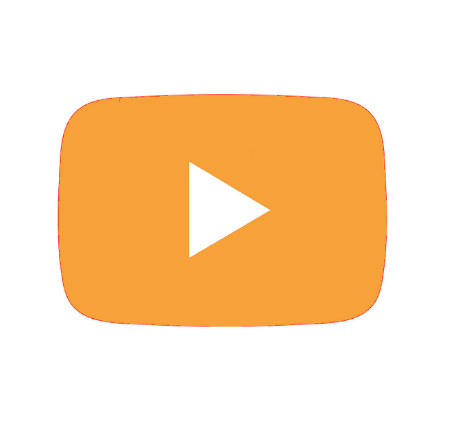As a proud alumni of Western Washington University’s College of Business and Economics, I’ve remained active as an advisory board member for the Marketing Department. While I’ve shared career advice and marketing tips with students as a guest speaker in the past, I was recently asked to share my thoughts about networking as part of a promotion for the upcoming Back2Bellingham alumni and friends weekend. The WWU student who interviewed me asked questions so thoughtful, I felt inspired to write my own blog post based on my answers. I hope you find these insights valuable, whether you’re graduating college or well into your career looking to turbo-charge your network.
How does someone, like a recent college graduate, build a professional network from scratch?
When I graduated from Western, I had no internship under my belt and no network to tap. I started with the only source I thought might be able to help me and thankfully, it paid off. I asked my mother, who was the Executive Director at an area non-profit, if she knew anyone in the marketing world and she introduced me to an Account Supervisor at a large full-service agency in Seattle who was on her board. That one interview led to an internship, which gave me the necessary experience to get a paying job in Portland, OR. The rest is history and it alls started with one introduction from my very small network.
My advice to recent graduates or anyone new to a town or industry, is to work your way outwards from the people you know (friends, family and coworkers) to those you need to know (industry influencers and executives). For graduating seniors, I recommend starting with your professors and other faculty. Do they know anyone that may be worth knowing and can help? Staff at the Career Center may also be helpful. The next stop is Google. Search for industry trade associations, special interest groups and other organizations in your target geography and take advantage of any membership discounts for students.
The final, but most important step, is to leverage every ounce of functionality LinkedIn has to offer. Start by building out your professional profile (LinkedIn has tutorials for this). Once your profile (especially your photo, title and masthead image) look professional and memorable, start sending connection requests daily. For over 15 years, I’ve sent (personalized) connection requests nearly daily and now I have over 23,000 connections. Identify and follow industry leaders and try to build rapport. Once connected, ask new target contacts for virtual or physical meetings. Don’t forget to join LinkedIn Groups based on interest, sign up for LinkedIn newsletters and register for relevant virtual events.
How do you get the most out of a networking event? Do you have tips on how to network at events?
Networking is inherently unappealing, if not a frightening prospect for a majority of the population. I happen to have a genetic predisposition to enjoy socializing with others, which includes an interest in meeting new people. When I moved to Portland in 1995, I only knew one person, my cousin. I now know hundreds of area professionals, thanks to decades of networking. That network has helped build my career ever since, resulting in not having to seek job interviews since I first arrived in Portland, as I was recruited for every job after my first internship.
I recommend a three step approach to maximizing the value of networking events. The first step is to identify worthy networking opportunities, starting with the organizations you identified earlier it his article. Create a calendar of events and have the discipline to attend those events rather than look for ways to avoid the sometimes painful experiences. The second critical step is to maximize your time while at the event. Wallflowers don’t get ahead. Be proactive, strategic and leave your ego (and insecurities) at the door. For introverts, consider bringing a “wing person” so you know at least one person at the event. Come up with an opening line that works for you. I like “It’s a pleasure to meet you. What’s your story?” as I’ve learned never to assume someone is happily employed or unhappily unemployed.
Don’t forget to ask for contact information (business card, email address, cell number or even social media profile) so you can follow up. Importantly, make sure you bring business cards. For bonus points, invest in a slick business card holder to make a big first impression. Last but not least, take the time to follow up with new contacts. Don’t assume they will follow up with you, regardless of what they may say in the moment. Bonus tip: help them remember you with a reference to your conversation, or memorable personal attribute (hair, clothing, whatever your signature element might be). When following up, make sure to do it within 24 hours, as people forget quickly and the greatest impact is based on immediacy, especially if they’ve offered to help you.
I’ve written and spoken extensively on networking over the years. Below are a few resources to read, watch or listen to in order to enhance the size and value of your network:
- Webinar: Networking tips from a Professional
- Podcast: The 5 Best Business Lessons from 25 Years of Entrepreneur Experience
- Podcast: How to Hack Your Career (from Intern to VP)
- Presentation Slides: Networking in the Digital Age
- Interview: How to build a career via networking
- Article: Referral-based Networking, Portland Style
- Article: Networking 101 for Entrepreneurs Tips to Build a Strong Network
- Article: 6 Online Business Networking Tips & Best Practices
- Article: The Three Golden Rules of Networking on Social Media
- Article: Digital Body Language: How to Build Trust and Connection, No Matter the Distance
- Article: Effective Strategies to move from Intern to Vice President in 5 Years or Less




